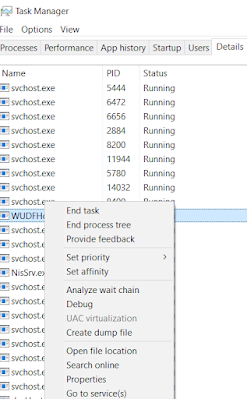Boost Your C# Application's Performance with Parallel.ForEach Loop
Introduction
When it comes to developing high-performance applications in C#, there are many techniques that can be used to optimize the code. One such technique is to use the Parallel.ForEach loop, which allows you to execute multiple iterations of a loop simultaneously on multiple threads. In this blog post, we'll explore how to use Parallel.ForEach loop in C# to improve the performance of your code.
Suggested Read : Why IEnumerable is Required?
What is Parallel.ForEach Loop?
The Parallel.ForEach loop is a feature in C# that allows you to execute multiple iterations of a loop simultaneously on multiple threads. It works by partitioning the collection of elements to be processed into smaller chunks, which are then executed in parallel on different threads. This can greatly improve the performance of your code, especially when dealing with large collections or time-consuming operations.
Using Parallel.ForEach Loop:
To use Parallel.ForEach loop in C#, you first need to create
a collection of elements that you want to process. This could be an array, a
list, or any other type of collection that implements the IEnumerable
interface. Once you have your collection, you can use the Parallel.ForEach
method to process each element in parallel.
Here's an example of how to use Parallel.ForEach loop in C#:
1 2 3 4 5 6 | List<int> numbers = new List<int>() { 1, 2, 3, 4, 5, 6, 7, 8, 9, 10 }; Parallel.ForEach(numbers, (number) => { // Process each number in parallel Console.WriteLine(number * 2); }); |
In this example, we're creating a list of integers and using the Parallel.ForEach method to process each element in parallel. The lambda expression passed to Parallel.ForEach is executed for each element in the list, and the result is printed to the console.
Benefits of Parallel.ForEach Loop:
Using Parallel.ForEach loop in C# can provide several
benefits:
Improved performance: By executing multiple iterations of a loop simultaneously on multiple threads, Parallel.ForEach can greatly improve the performance of your code, especially when dealing with large collections or time-consuming operations.
Simplified code: Parallel.ForEach can simplify your code by allowing you to process collections in parallel without having to manage the threads yourself.
Scalability: Parallel.ForEach can scale to take advantage of multi-core processors, making it ideal for applications that need to process large amounts of data quickly.
To Know More About Parallel.ForEach Loop, Check out the Video:
Conclusion:
In conclusion, using Parallel.ForEach loop in C# can greatly improve the performance of your code, especially when dealing with large collections or time-consuming operations. By partitioning the collection of elements to be processed into smaller chunks and executing them in parallel on multiple threads, you can take advantage of multi-core processors and achieve better scalability. With the benefits of improved performance, simplified code, and scalability, Parallel.ForEach is a powerful tool to have in your C# programming arsenal.

Comments
Post a Comment